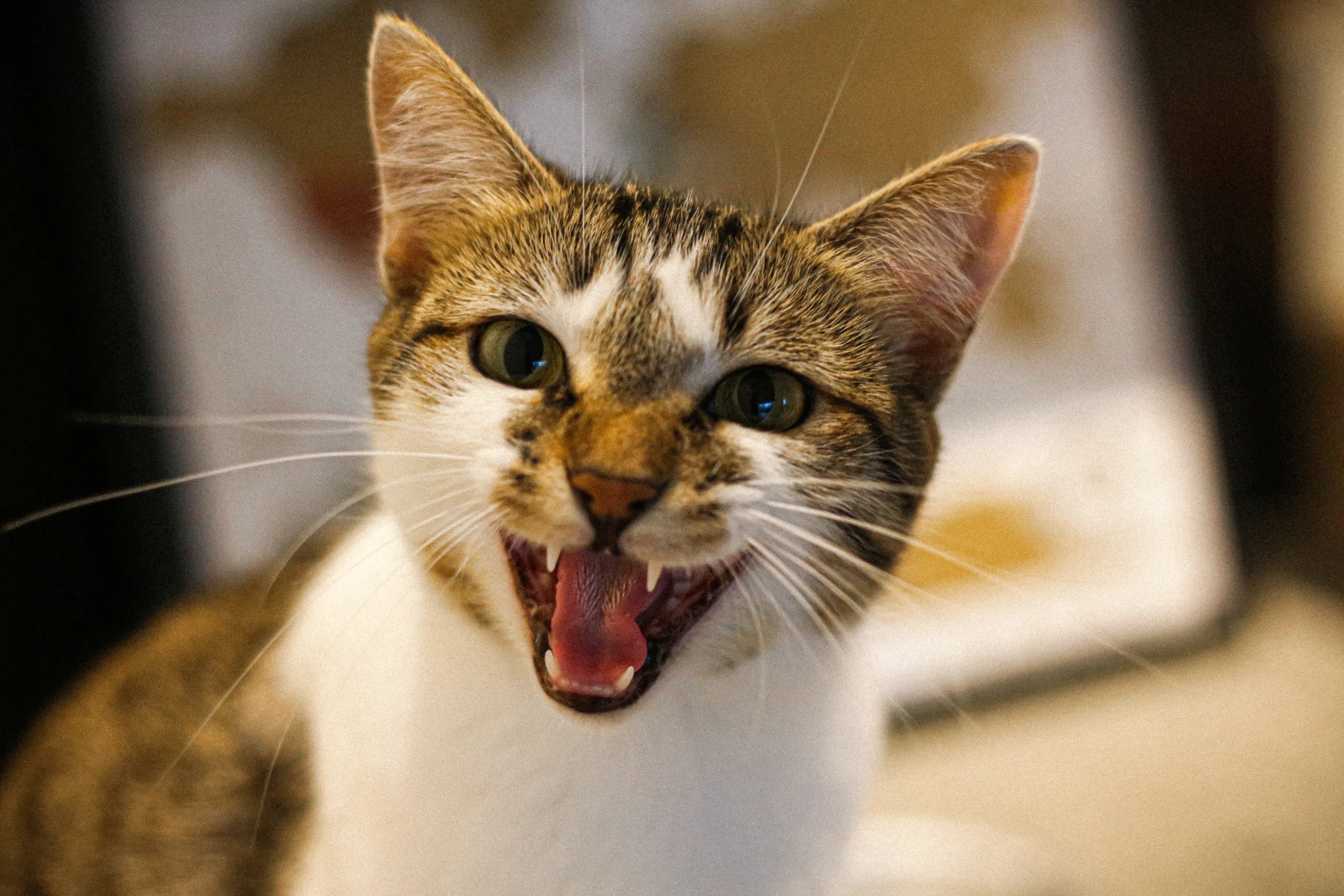Cats Meowing: As a cat owner, you’ve likely experienced your furry companion’s unique way of communicating through various meows. Cats are known for their vocalizations, and their meows can convey a wide range of emotions and messages. From a soft, gentle mew to a loud and insistent yowl, each meow has its distinct meaning. In this article, we will delve into the world of cat meows, exploring their meanings, deciphering whether a meow indicates happiness, understanding how cats express their affection, and whether cats care when you cry.
For more about cats click here
What Does It Mean When a Cat Meows?
Cat meowing is a form of vocal communication used by felines to express their needs, emotions, and desires. While every cat is unique, and their meows may differ in tone and intensity, certain meowing patterns are commonly observed:
- The Greeting Meow: A short and gentle meow often used by cats to say hello or acknowledge your presence.
- The Demanding Meow: A persistent and insistent meow that your cat may use to communicate their hunger or request for attention.
- The Content Meow: A soft and melodic meow that typically indicates your cat is happy and content.
- The Distressed Meow: A high-pitched and urgent meow that can signify pain, discomfort, or anxiety.
- The Attention-Seeking Meow: A drawn-out and expressive meow used to grab your attention and engage you in play or interaction.
Understanding the context and tone of your cat’s meows can help you respond appropriately and meet their needs.
Is a Cat Happy When It Meows?
In some cases, a cat’s meow can indeed indicate happiness or contentment. The content meow, characterized by a soft and gentle sound, is often a sign that your cat is feeling relaxed and satisfied. Cats may use this meow when they are lounging comfortably, receiving affection, or enjoying their surroundings.
However, it’s essential to remember that not all meows indicate happiness. Cats can meow for various reasons, and each meow should be considered in conjunction with your cat’s body language and behavior to understand their emotional state fully.
How Do You Tell If a Cat Likes You?
Cats express their affection in subtle yet meaningful ways. Some common signs that a cat likes you and feels comfortable in your presence include:
- Purring: Purring is a classic sign of a content and happy cat. Cats often purr when they are relaxed and enjoying your company.
- Kneading: When a cat kneads their paws on you, it’s a sign of comfort and trust. This behavior is reminiscent of their kittenhood when they kneaded their mother’s belly to stimulate milk flow.
- Head-Butting or Bunting: Gently rubbing their head against you is a display of affection and marking you with their scent, signifying that you are part of their family.
- Slow Blinking: If your cat gives you slow blinks or “cat kisses,” it’s a sign of trust and affection. Cats reserve this gesture for those they feel secure and safe around.
- Following You Around: When a cat follows you from room to room, it’s a sign that they enjoy your company and want to be near you.
Do Cats Care When You Cry?
While cats may not understand human emotions in the same way we do, they can still pick up on changes in our behavior and energy. Cats are sensitive to their owner’s emotional state, and they may react to crying or distress by showing concern or seeking comfort.
Some cats may approach their crying owners, purr, knead, or offer gentle nudges as a way of providing comfort. They may also stay close by, keeping a watchful eye on you. While their actions may not be the same as the way humans comfort each other, cats do demonstrate empathy in their own unique way.
FAQs About Cats Meowing
1. Why does my cat meow excessively?
Excessive meowing can have various causes, including hunger, boredom, seeking attention, stress, or medical issues. If your cat’s meowing is persistent and concerning, consult with your veterinarian to rule out any underlying health problems.
2. Can I meow back at my cat?
You can try meowing back at your cat as a form of communication and play. Some cats may respond with interest or curiosity, while others may not react much.
3. How can I stop my cat from meowing for attention?
If your cat meows excessively for attention, try to provide regular playtime and interactive sessions to engage their energy. Reinforce calm behavior with treats or praise and avoid rewarding attention-seeking meows.
4. Why does my cat meow at night?
Cats are naturally more active during the dawn and dusk hours, known as crepuscular periods. Nighttime meowing may be a way for your cat to seek attention or express their energy. Ensuring your cat has enough playtime during the day and providing interactive toys before bedtime may help reduce nighttime meowing.
5. What if my cat suddenly stops meowing?
If your typically vocal cat suddenly stops meowing and displays other concerning signs, such as lethargy or appetite changes, it may indicate an underlying health issue. Contact your veterinarian to have your cat examined for any potential medical problems.
Conclusion on Cats Meowing
Cat meows are a significant aspect of feline vocal communication, allowing them to express their needs, emotions, and desires. While some meows may indicate happiness, each meow should be considered within the context of your cat’s overall behavior. Understanding your cat’s meows and body language can strengthen your bond and improve your communication with your feline friend.
Click here for more
